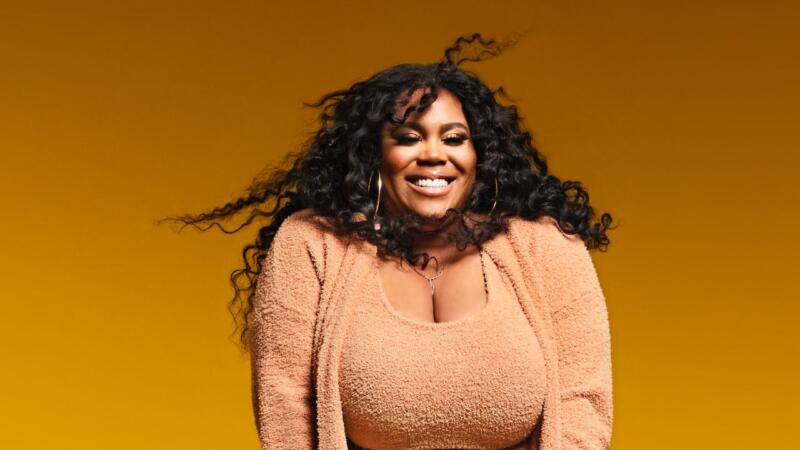Recently launching her The Nina Parker Collection in Macy’s for plus-sized consumers, media personality and journalist Nina Parker is driving her career to any avenue she sees fit. Parker exudes boss lady energy while balancing being a co-host on E!’s Nightly Pop talk show and building her fashion empire.
Knowing her destiny isn’t tied to one place, she recently spoke with Shadow & Act about her television career, ethicality in journalism, why Black people should reconsider ‘Imposter syndrome’ and more.
S&A What have you taken from those your previous roles and how did you utilize those methods in this current role?
NP: What I’ve just tried to do with positions is to just figure out what I love, what I want to gravitate to, what experiences I never want to have again, how I want to stand up for myself [and] how I want to vocalize. So I think for me, I’ve really learned to have a voice for myself behind the camera, and I’m okay with kind of risking my position to do what I feel is ethical.
I think one thing about my career, you’ll find that I’ve remained very ethical in the things that I do and that I say. I try to maintain those relationships and I try to be fair, and I’m not willing to risk my reputation for a story that will be gone in 24 hours.
Are you ever fearful of the unknowns, such as show cancellations?
NP: I mean, TV is unpredictable. It’s just what I’ve learned in this industry is everything changes, and things can be swept. Things can change tomorrow. I always recommend having multiple streams of income. Honestly, I’m not afraid of that kind of stuff because I don’t feel like my destiny is tied to one place. So wherever I’m at, I’m going to excel [and] I’m going to achieve. I’m going to give you these thoughts and I’m going to give you this talent. So it doesn’t matter necessarily what network it’s on.
Obviously, I love where I’m at, but ultimately my future to me is ordained by one person or one place. So life is going to life. These networks, one day they love you, and the next day they’re making a change. You can’t take it personal.
The best you can do is just create that audience for yourself so that when the time does come that you need to move forward, people really see you for who you are and it makes you available for the next thing. I feel like you’re always where you’re supposed to be. So if the time does come when it’s time to do something different or add something, I’m cool with that.
You mentioned that this industry is forever changing. How do you stick with those changes?
NP: I try not to put too much pressure on myself. I did this Q& A with Kandi from The Real Housewives of Atlanta years ago, and I kind of asked her the same thing. And she was just like, “You can’t get complacent in where you’re at. You should always be thinking about the next thing.” And obviously, from her level of success, that’s really good advice. And I think sometimes you get to a place, and you’re like, “OK, let me just ride this wave for a while.” And I think it’s okay to do that for a season too.
One thing I appreciated about Harvey [Levin] was that even though he was older and he was really old school journalism, when we brought new ideas to him, he’d be like, ‘Well, let’s try it out. If it fails, it fails.’ And that really kind of set the standard for me to not be afraid of failing. Not everything is going to hit. I think that’s really why I’m able to kind of move the way I do because I’m not afraid of it fails.
Have you ever dealt with Imposter Syndrome?
NP: I still try to figure out what Impostor Syndrome is. Honestly. I’m like, ‘What is this really?’ And then I later found out that this was actually something that was coined by two white women who were talking about people of color trying to be in a workplace that really had no minorities. And it definitely changed my view on the definition of Imposter Syndrome and how it technically should be used and if it even should be used.
I think it’s just one of those buzz words right now– like woke or whatever. I think we all deal with insecurities, and I think being a person of color, especially a black woman in a space, is not anything that I can define to anybody else but other black women. It is just something that we deal with that I think is hard to define. And it creates such a tribe of trust with other women who are going through the same thing.
Like, you can’t really explain it to the people outside of it. But when you’re in it, there’s that unspoken thing. And sometimes it’s not about the imposter syndrome.
What makes your end of the night pop?
NP: It varies, so it’s not always the same thing. Some nights it’s just like, “OK, let me decompress. Let me shut everything down.” Some nights it’s like there’s a movie. I have The Batman queued up, and I’ve been waiting for the right day to watch it. I like to do little things where I can be excited about it at the end of the week. So it just depends.
Watch the full interview above.

